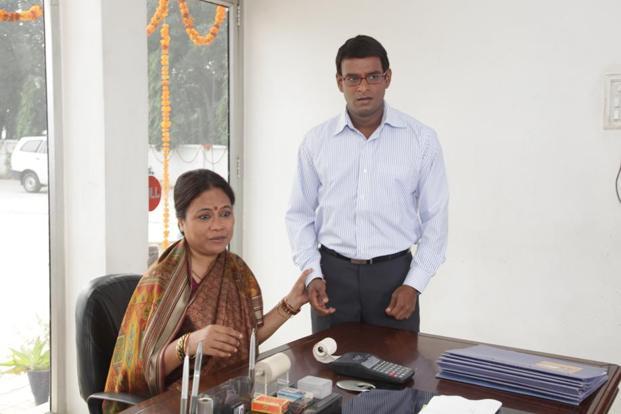Director: Sandeep A. Varma
Cast: Sasho Satish Saarthy, Seema Biswas, Yashpal Sharma, Divya Dutta, Kishor Kadam, Asif Basra
Two remarkable scenes stand out in this alarmingly factual representation of events – events that jolted a nation too used to looking the other way when shit hits the fan. Not many realise that, by simply ignoring trouble brewing in broad daylight, the trouble doesn’t go away; one’s conscience does. This film tries to drive home the apathy and corruption surrounding the death of Shanmughan Manjunath – the 27-year old IOC sales officer murdered for sealing corrupt petrol pumps in rural UP, back in 2005.
In the first scene, a single line is offered as explanation by one of the captured culprits to the cops, “He was a very bad guy. He refused to take our money.”
Think about these words and think about how antsy we get when a (rare) traffic cop insists that we pick up our driving license from the RTO after breaking a red light. The truth is frightening; our immediate reaction is a mechanical palm-oiling offer cultivated through years of practice.
Manjunath, brought to life very effectively by Sasho Satish Saarthy, is that irritating righteous cop. Golu (Yashpal Sharma), the pump manager that pulled the trigger, is that arrogant drunk driver – a man overcome by desperation when his ways are threatened.
The countrywide chaos that ensues is not unusual anymore. Strangers seem to be the ones determined to seek justice—not for an individual, but for an ideology— while loved ones are too guilt-ridden to fight the battle. This happens, even today; the chest-beating fades away after a month, and life carries on.
The second scene involves Manjunath’s grieving parents. From his son’s final belongings, his father (Kadam) discovers an old unopened letter. He admits to his wife (Biswas; extremely moving) that he had written it to ask for money, while holding a compensation cheque in his other hand. The irony is cruel; the realization, haunting.
Director Varma tugs at our conscience by feeling strongly about his subject, and resorting to a straightforward docudrama style, where Manjunath often breaks the fourth wall, and directly addresses the audience. This is a bit awkward to see – because it’s the moment we’re pulled out of the sheer injustice of it all, and reminded that this has already happened, and what we’re seeing is a recreation of events.
Even in early breezy college scenes, there is a gloomy feeling of inevitability—the kind I last felt while watching Nana Patekar’s gloomy, startling directorial vehicle, Prahaar. The end is definite, and redemption subjective, especially in true stories. That he was an Indie-Rock aficionado only adds to his fading legend, with the lilting tunes of Parikrama lending a sort of tragic gravitas to his rebelliousness.
Varma plays with the narrative initially, but the to-and-fro timeline disrupts the spiralling emotional trajectory of his disillusioned protagonist. Similarly, the exchange between a dead Manjunath and his killer is an interesting play on resolution, but one that eventually outlives its purported depth.
The sign of a good biopic, like a documentary, is its current relevance and ability to transcend flaws, as well as the first emotion it elicits from viewers. I felt wronged, and grew stronger as things progressed, only to be shaken by the truth of how relatable Manjunath’s psychological struggle was.
The tragic part is that Manjunath wasn’t a hero; he only had his eyes open in an unrelenting world. He was only doing his job with integrity – which is often enough to be feared, and misunderstood, these days.






Leave A Comment
You must be logged in to post a comment.